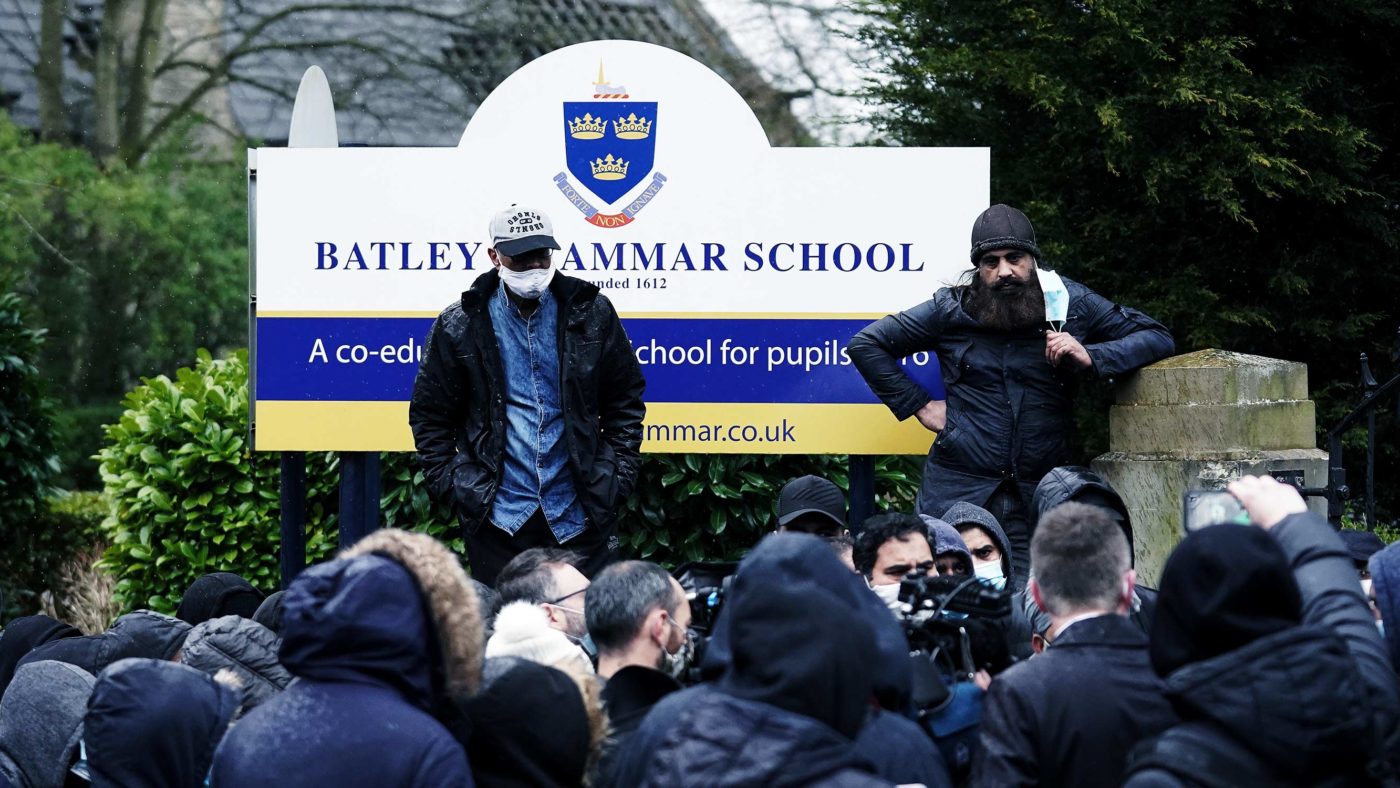What do this week’s events in the Yorkshire town of Batley tell us about British society?
To recap, a religious studies teacher has not only been suspended for showing a caricature of the Prophet Mohammed to pupils, but is now apparently under police protection out of fear for his safety. The school itself was also forced to shut on Friday after demonstrators massed outside the gates.
On one level this is a straightforward argument about freedom of speech, and it shouldn’t be a difficult one to judge. Of course, certain issues need to be dealt with in a sensitive manner, but the risk of causing offence is nowhere near an adequate reason to try to shut down a topic, let alone summarily suspend the teacher involved.
The fact that the offending material pertained to religion is neither here nor there. There are no longer blasphemy laws in this country for a good reason and religious sentiment, no matter how sincerely felt, should not occupy a special category of grievance. The claim from a local charity, Purpose of Life, that “we can’t use freedom of speech…to offend people” could scarcely be more wrong –though the same group gave a good example of where there might be a sensible limit on free speech by including the teacher’s name in a public statement (thankfully they have since removed it).
When former chancellor Sajid Javid warned of a “deeply unsettling and potentially dangerous precedent” in Batley, he was referring to reports of intimidation. But he might just as well have been talking about the way that some in positions of authority and influence readily accepted the arguments of what was, in essence, an angry mob at the school gates.
The school’s headteacher, for instance, not only suspended the teacher instantly, but issued a grovelling, “unequivocal” apology about a matter for which there is ample room for equivocation. Elsewhere the Shadow Education Secretary Kate Green rightly condemned the “intimidation” of a teacher, but also said she “welcomes the school’s swift response”, when it was the very swiftness of the response that was so problematic.
And where was the normally assertive National Education Union when one of its members was being pilloried? Rather than defending him, the NEU has so far offered nothing but a quote from a spokesperson saying it “would not be appropriate to make any further comment”.
Given that a French teacher, Samuel Paty, was murdered after a near-identical incident just months ago, is it so much to expect a more forthright defence of the rights of educators to do their job? Worse still, giving in so quickly to the demands of a small but vocal group sends a terrible message that you can get your way if you kick up enough of a fuss.
At the same time, we should also be intensely wary of extrapolating too much from the actions of a loud but pretty small group of protesters. The crowd outside Batley Grammar don’t necessarily represent the views of the majority of the town’s Muslim community, let alone those of British Muslims – who are, in any case not a single community, but a whole host of different ones.
As CapX regular Rakib Ehsan noted in a thoughtful piece this weekend, Britain remains “one of the most successful examples of a modern pluralistic democracy in the world”. Ensuring that remains the case means vigorously defending our liberties, including freedom of speech: not just from censorious demonstrators, but from insipid officialdom too.
Click here to subscribe to our daily briefing – the best pieces from CapX and across the web.
CapX depends on the generosity of its readers. If you value what we do, please consider making a donation.


